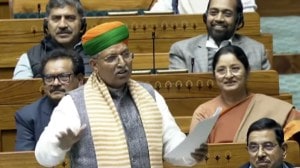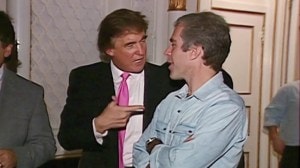On telecom security,India firm with China,gave in to US
Indias new telecom security approval process inflexible and unworkable,USTR reports.
Calling Indias new telecom security approval process inflexible and unworkable,the United States Trade Representative USTR has disclosed in its annual compliance report that the Indian government suspended implementation of several of these conditions after the US conveyed the concerns of its companies.
This suggests that the Telecom Ministry is running two parallel approval processes. The major change,effected last year,was the mandatory requirement for foreign telecom companies to submit their source code in an escrow account,sharing of equipment designs and other such measures.
This essentially created a level-playing field which finally let Chinese equipment enter Indian markets after adequately satisfying security concerns,a big roadblock for Chinese telecom companies.
But the US and many European companies firmly resisted this move and the issue came to a head during US President Barack Obamas visit. It was said then that a committee of experts would look into these concerns. But no further progress has taken place. In the meantime,both approval processes seem to be under way,a fact confirmed by the USTR report.
The guidelines apply to the purchase of imported products and do not apply to products manufactured in India by Indian-owned or Indian-controlled manufacturers8230; the new regulations sought to impose an inflexible and unworkable security approval process,which mandated the forced transfer of technology to Indian companies,the escrowing of source code and other high-level and detailed designs,and assurances against malware and spyware during the entire use of the equipment, stated USTR Ron Kirk in his compliance report.
Clearly,the government faced US pressure on this with Kirk recording that Washington emphasised to the Indian government that these measures effectively halted billions of dollars worth of trade in telecommunications equipment and were unlikely to advance Indias security objectives. Recognising these concerns,the GoI suspended implementation of several of these conditions while it works to revise the policies in consultation with relevant stakeholders.
Besides this,the report records US concerns on Indian efforts at imposing stringent requirements on encryption technologies. Given that Indias national security concerns may be shared by many other countries,the United States has encouraged India to actively seek to address those concerns through policies that do not deviate from commonly accepted or best practices.
Similarly,the US has put down its concerns over India authorising government intermediaries to purchase satellite capacity. Foreign operators are required to first sell the DTH direct-to-home capacity to Indias domestic satellite operator,the Indian Space Research Organisation,which resells the capacity to DTH customers and maintains ownership of the customer.
For the US,these constitute barriers to supplying satellite services and it would continue to push for changes in the current framework,the USTR confirmed.
- 01
- 02
- 03
- 04
- 05































